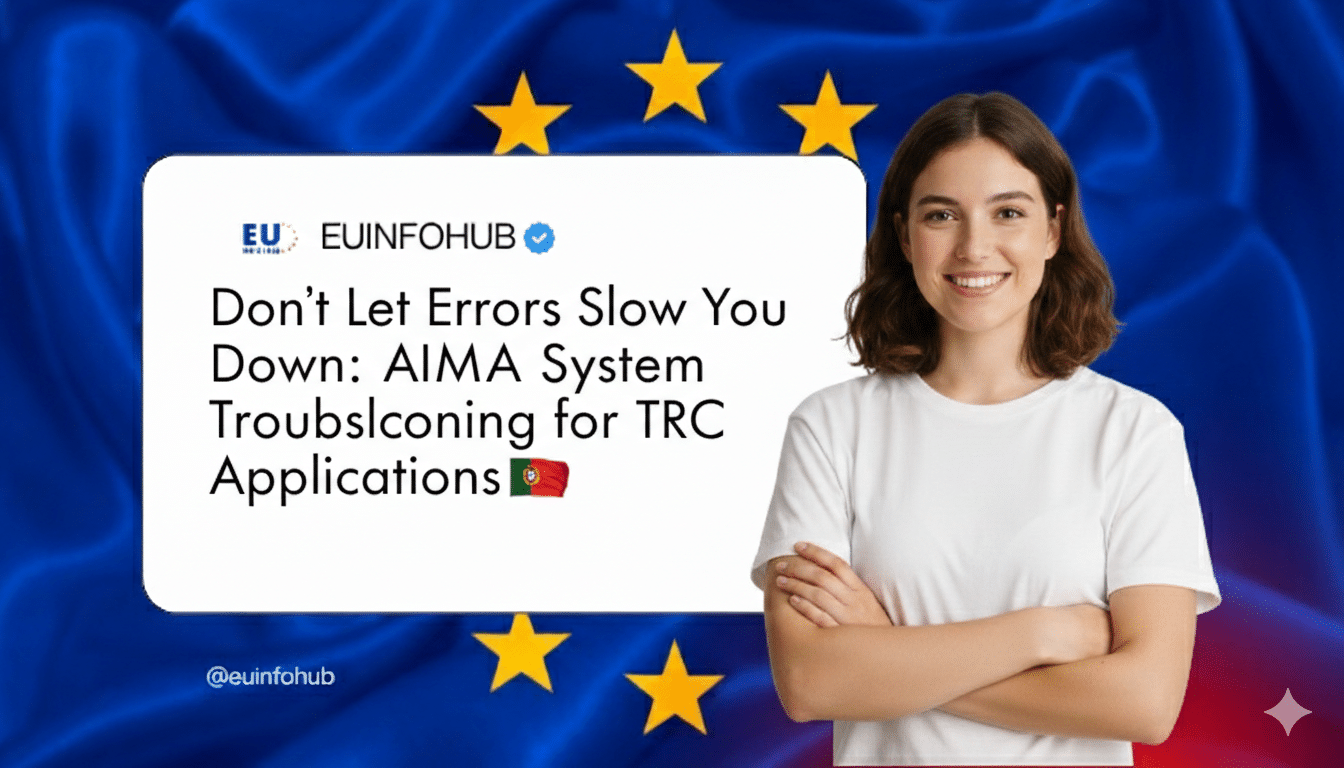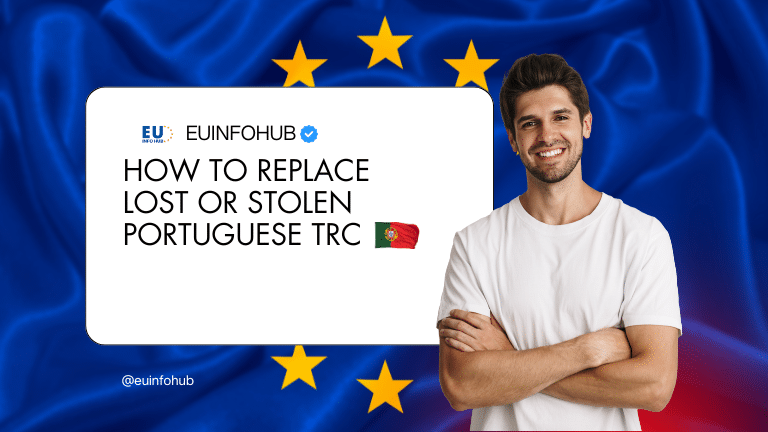Thinking about working in Europe but overwhelmed by all the red tape?
You’re not alone. Questions like “Do I even qualify?”, “What if I get rejected?”, or “Where do I even start?” stop many talented professionals in their tracks.
That’s precisely why the EU Blue Card exists. Designed for skilled non-EU workers, it’s your pathway to legally live and work across much of Europe—with real potential for long-term residency, career growth, and even permanent settlement.
In this guide, we break down the process clearly, including blue card eligibility, required documents, and application instructions. So, without much delay, let’s get into the topic.
EU Blue Card Eligibility: Criteria You Must Meet
Now, the question is, who can apply for the EU Blue Card? Let’s break down the things that make sense exactly. To qualify for this European work visa, you’ll need three key things:
- A higher education degree (usually a bachelor’s or above)
- A valid job offer or work contract from a company in the EU, and
- A salary offer that meets the country’s minimum threshold.
Now, here’s where people get stuck: “What if my degree isn’t recognized?” Different EU countries have their own rules.
For example, Germany is quite flexible and even accepts equivalent work experience in some cases. France, on the other hand, is stricter and usually wants formal academic proof. So always check country-specific details!
If you hold a solid degree, have a genuine job offer, and meet the salary threshold, you’re likely eligible for this EU work permit and one step closer to your Green Card Europe dream.
What documents do I need to apply for an EU Blue Card?
Let’s be real, documentation overload can feel like the most prominent mountain in the EU Blue Card journey. However, here’s the good news: once you break it down step by step, it becomes manageable.
Here’s what you’ll typically need:
- A valid passport
- Your university degree (and sometimes transcripts)
- A job offer or employment contract from an EU employer
- Proof of salary, like your offer letter or salary slip
- CV
- Health insurance
You must keep digital copies of all your documents. If they are not in an official language, such as German or French, you need to translate them in advance to avoid a panic situation.
If you’re not clear about health insurance, check out this guide on health insurance for expatriates in Europe.
Now that you are aware of all the required documents, the next question that might be raised is how to apply.
Step-by-Step Guide to Apply
Here is the step-by-step guide that helps you get a European work visa and ultimately make you eligible for EU Blue card:
Step 1: Find a job
First things first, you will need a job offer from a company. It must be full-time or meet the required salary threshold. This way, you can have a solid statement to back up your request.
Step 2: Gather your documents
The next step is to double-check all essential documents and prepare them accordingly. If a company needs translation or notarization, it should be done as soon as possible to meet the job opportunity in Europe.
Step 3: Apply at the embassy or immigration office
Once you’re done with this, you’ll have to submit your application at the embassy or consulate of the country where you plan to work. Some countries also allow online applications.
Step 4: Wait for approval
The card processing time varies by country, with an average duration of 4 to 12 weeks. For instance, Germany typically has a faster card approval process compared to France.
With this guide, your European work visa journey becomes clearer, and your dream of working in Europe through this EU work permit gets a big step closer.
Rights & Benefits of EU Blue Card Holders
Here are perks and benefits of having EU Blue card:
- Live and work legally in the EU country that issued your European work visa
- Bring your family with you
- Path to permanent residency
- Freedom to move
- Access to social security, healthcare, and employment rights, just like locals
- A real path toward your green card Europe dream
Ideal for skilled professionals seeking job opportunities for immigrants and long-term EU careers
How Long Is the EU Blue Card Valid?
The EU Blue Card is generally valid for one to four years, depending on the country and the length of your work contract. For example, Germany may issue it for up to four years, while other countries might align it with your employment duration.
The good news is, it’s renewable as long as you continue to meet the Blue Card eligibility requirements, and you can extend it without much hassle. Now, here’s a big concern for many: “What if I lose my job?”
Most European countries also offer a grace period of up to 3 months to find new employment, which is given before your EU work permit becomes invalid. You see, the system is designed to give skilled workers some breathing room. Your European work visa journey is built to support your transition. This journey does not have to end with job loss.
Can You Change Jobs on an EU Blue Card?
You can change your job at any time with an EU blue card, but there are some rules, particularly in first countries. This is because most countries require permission from immigration authorities before switching employers in the first year.
After that, things get much easier. You’ll have more freedom to change jobs or even move to a different EU country after 18 months. So if you’re worried, “Will I be stuck with one employer?”—the answer is no, not forever.
The European work visa system is designed to offer job flexibility while still maintaining a structure for immigration control.
What Kind of Jobs Qualify for the EU Blue Card?
The high-skilled professions are the main focus, and these jobs require a university degree. Common eligible roles include:
- Software engineers & IT specialists
- Doctors & medical professionals( healthcare also include)
- Engineers (civil, mechanical, electrical, etc.)
- Researchers & scientists
- Architects,
- Business consultants
Still unsure?
If your job is high-skilled, degree-based, and in demand, you’re likely eligible for the EU Blue Card.
Conclusion
If you are a skilled person, then the EU wants you – it’s that simple. The EU offers you real value, including career mobility, a path to permanent residence, and easy access for your family. You are eligible if you have a high-skilled degree; start preparing now. For a proper understanding of EU Blue card eligibility, head to the EU Info Hub for detailed insights.
FAQs
Can I bring my spouse and kids?
The blue card features family reunification. It means your family can join you in Europe. Additionally, they are allowed to work and study there.
How long does it take to process?
The processing time may take 4 to 12 weeks, but it totally depends on the country. Some countries tend to be faster than others.
Is the Blue Card more beneficial than a standard work visa?
Absolutely. It’s designed for high-skilled professionals and offers significant benefits, including job mobility, faster permanent residency, and simplified family access. It’s a step above a standard EU work permit.
Can I apply from inside the EU?
Yes, in many cases! If you’re already in the EU—say on a student or another European work visa, you can usually switch to the Blue Card without leaving. Please double-check the specific rules for your country.
















1 thought on “Blue Card Eligibility: Find High-Skilled Opportunities in Europe”